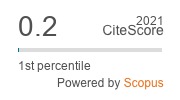Quasi Oppositional Artificial Fish Swarm Optimization Based Multi-Hop Routing Protocol for Vehicular Adhoc Networks
DOI:
https://doi.org/10.17762/msea.v71i3.260Abstract
Vehicular Adhoc Networks (VANET) is a technology which utilizes moving vehicles as nodes to deploy a mobile network. Since the vehicles move frequently, a challenging issue lies in the design of robust routing techniques to optimize routes. At the same time, routing becomes a tedious process as there is no specific node responsible to identify and direct the routes amongst the nodes. Therefore, an ideal routing protocol becomes essential to improve resource utilization in VANET. This study designs a new quasi oppositional artificial fish swarm optimization based multi-hop routing protocol (QOAFSA-MRP) for optimal route selection in VANET. The QOAFSA technique involves the integration of quasi oppositional based learning (QOBL) with traditional AFSA to enhance the convergence rate. Besides, a weighted clustering scheme is designed to organize clusters in the network. Moreover, the QOAFSA-MRP technique derives a fitness function involving diverse network parameters for effective selection of routes to destination. For evaluating the better performance of the QOAFSA-MRP technique, a comprehensive simulationanalysis is performed and the results are inspected under varying aspects. The obtained experimental values pointed out the supremacy of the QOAFSA-MRP technique over the other techniques.




